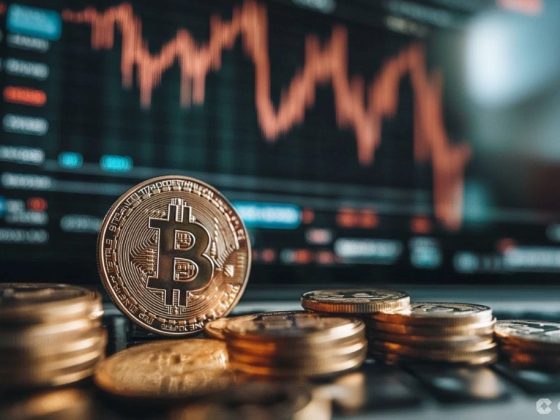Key takeaways:
Experts say XRP’s contested classification as part security and part something else is likely to delay the approval of spot ETFs. The SEC is also worried about market manipulation and cybersecurity risks. Bitwise Asset Management firm and Canary Capital have since filed separate applications for an XRP ETF in the United States.The U.S. Securities and Exchange Commission (SEC) is unlikely to approve exchange-traded funds (ETFs) tracking XRP anytime soon, at least not until Ripple Labs’ legal battle with the regulator is fully settled, some experts told Cryptonews.
This comes after crypto asset manager Bitwise and Nashville-based firm Canary Capital filed applications to issue exchange-traded funds based on the XRP cryptocurrency earlier in October.
The push for XRP exchange-traded funds follows the successful launch of several spot Bitcoin ETFs in January and Ethereum ETFs in July. The SEC had repeatedly rejected the funds, worried about investor protection.
But the regulator lost a lawsuit brought by Grayscale Investments, forcing it to approve the ETFs. In approving the funds, SEC Chair Gary Gensler warned Bitcoin remains a “volatile asset” and investors should be careful.
Since their debut, Bitcoin ETFs have attracted more than $19 billion in capital from institutional and retail investors, according to Sosovalue data, making them the “most successful ETFs in history.” Meanwhile, total Ethereum net inflows had reached $558.9 million, as of Oct. 14.
XRP’s Security Status Could Delay ETFs Approval
According to three market analysts who spoke to Cryptonews, the SEC is unlikely to approve spot XRP ETFs as long as court challenges regarding the token’s legal status as a “security or commodity” are not resolved.
Yuriy Brisov, partner at UK-based crypto law firm Digital & Analogue Partners, said the SEC approved BTC and ETH funds “because there was a clear set of rules, existing futures markets, and a mature market.” Also, regulators considered both assets as commodities and not securities.
“Ripple, on the other hand, has more problems to deal with,” Brisov told Cryptonews. He added:
“While judges concluded that selling XRP programmatically is not a security, XRP sales to institutions were supposed to be securities, but [are] unregistered as securities. The appeal by the SEC keeps that issue open. Also, there is no regulated futures market for XRP, which is why the SEC does not want to approve an ETF.”
Created by the founders of Ripple Labs in 2012, XRP is the native token of the open-source XRP Ledger. Ripple uses the token and the blockchain in its cross-border payments business. XRP is the seventh-largest crypto asset by market cap, with $30.5 billion in assets.
Ripple has been embroiled in a legal battle with the SEC for over four years. The SEC alleges that the company, together with its CEO Brad Garlinghouse and co-founder Chris Larsen, unlawfully sold XRP—which it sees as a security—to retail investors on exchanges in 2019.
XRP must, therefore, fall under the purview of the U.S’. securities laws, the SEC argues. In 2023, Ripple secured a partial win after U.S. District Judge Analisa Torres ruled that XRP is not a security when sold to retail investors on crypto exchanges. The ruling also said XRP will be seen as an unregistered security offering if sold to institutional investors.
The court ruling was celebrated as a landmark win for the crypto industry, as it could clarify how dozens of other cryptocurrencies targeted by the SEC could be regulated. On Oct. 2, however, the SEC filed to appeal Judge Torres’ ruling, a decision Garlinghouse described as “misguided.”
“XRP’s status as a non-security is the law of the land today – and that does not change even in the face of this misguided – and infuriating – appeal,” the Ripple CEO wrote on X.
On Oct. 10, Ripple chief legal officer Stuart Alderoty announced on X that the company had filed a “cross-appeal” – a kind of counter-appeal against the SEC’s court appeal – “to ensure nothing is left on the table.”
“Given the unresolved legal dispute, it is unlikely that the SEC will approve the XRP ETF before the case is fully settled,” Illia Otychenko, lead analyst at Gibraltar-based crypto exchange CEX.IO, told Cryptonews via email.
XRP Exchange-Traded Funds Are ‘Inevitable’
Suraj Sharma, head of policy and government affairs at Indian crypto exchange Bitbns, noted that the U.S. SEC’s reluctance to approve an XRP ETF will likely come from these legal complexities given that sales of the token to institutional investors are still viewed as unregistered securities.
But he is also optimistic that the funds will eventually get the go-ahead. Speaking to Cryptonews, Sharma said:
“…an XRP ETF is inevitable. XRP has been among the top-ranked cryptos for over 10 years and is a very desirable one. It has witnessed strong adoption among businesses and financial institutions as a faster and cheaper payment system.”
Sharma added that the approval of Bitcoin and Ethereum ETFs cemented crypto’s status as a “legitimate” investment class in which institutions could invest. Likewise, “an XRP ETF will expand the market by providing investors with a regulated way to invest in XRP,” he said.
A favorable outcome in Ripple’s ongoing lawsuit is crucial in establishing that XRP is not a security under U.S. federal securities law. Analysts say the approval of an ETF would be a boost for the XRP price, which has for years underperformed the wider crypto market due to Ripple’s legal woes.
In August, for example, the price of XRP soared nearly 30% after Judge Torres ordered Ripple to pay a $125 million fine for breaching securities laws. The fine was seen as a win for Ripple since the SEC was looking for $2 billion in damages. After Ripple’s partial victory in June 2023, the XRP price almost doubled in value to as high as $0.94.
But XRP tanked about 11% following the SEC’s recent decision to appeal a federal court ruling classifying the token as not a security. Otychenko, the CEX.IO analyst, noted that the SEC vs Ripple lawsuit has badly affected XRP-focused investment funds.
According to CoinShares, XRP products currently manage only $86 million in assets worldwide. By comparison, around $1.2 billion has been invested in funds on Solana, another cryptocurrency awaiting regulatory approval for an ETF in the U.S.
US Presidential Election in Play
For Brisov, the Digital & Analogue Partners crypto lawyer, much could change after the U.S. presidential election in November.
A crypto-friendly administration might ease some of the strict regulations that have kept XRP out, he said. It could even lead to the removal of SEC Chair Gensler, as presidential hopeful Donald Trump recently suggested.
Many crypto adherents believe Gensler is deliberately stifling the industry by pursuing legal action against multiple projects.
“Shifting legislation and a desire not to fall behind other jurisdictions might also hasten the regulators’ pace. But for now, the legal murkiness surrounding XRP is arguably the biggest issue,” Brisov told Cryptonews.
He added that even before the approval of XRP exchange-traded funds, the SEC might still “require stronger protections, such as increased control over trading platforms or harsher requirements for custody.”
“Such steps are necessary for mitigating risks likely to arise due to a specific nature of the XRP market and less developed system as compared to Bitcoin and Ethereum,” Brisov detailed.
The post US SEC Unlikely To Approve Spot XRP ETFs: Experts appeared first on Cryptonews.


